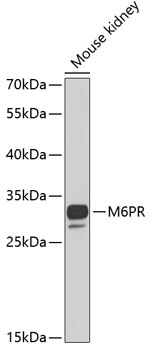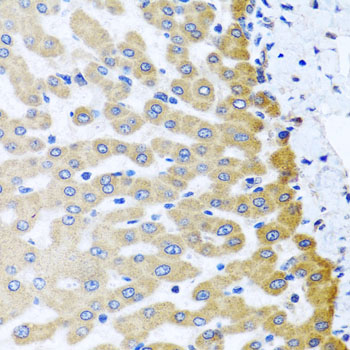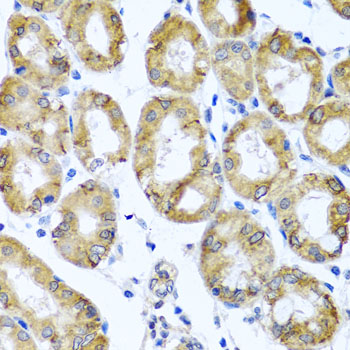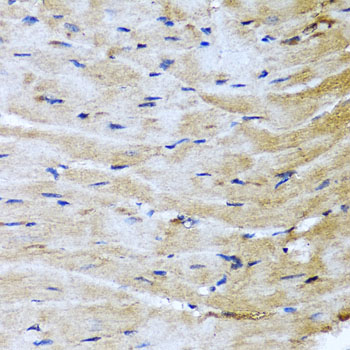-
Product Name
M6PR Polyclonal Antibody
- Documents
-
Description
Polyclonal antibody to M6PR
-
Tested applications
WB, IHC
-
Species reactivity
Human, Mouse, Rat
-
Alternative names
M6PR antibody; CD-M6PR antibody; CD-MPR antibody; MPR 46 antibody; MPR-46 antibody; MPR46 antibody; SMPR antibody; cation-dependent mannose-6-phosphate receptor antibody
-
Isotype
Rabbit IgG
-
Preparation
Antigen: Recombinant fusion protein containing a sequence corresponding to amino acids 27-185 of human M6PR (NP_002346.1).
-
Clonality
Polyclonal
-
Formulation
PBS with 0.02% sodium azide, 50% glycerol, pH7.3.
-
Storage instructions
Store at -20℃. Avoid freeze / thaw cycles.
-
Applications
WB 1:500 - 1:2000
IHC 1:50 - 1:200 -
Validations

Western blot - M6PR Polyclonal Antibody
Western blot analysis of extracts of mouse kidney, using M6PR antibody at 1:1000 dilution.Secondary antibody: HRP Goat Anti-Rabbit IgG (H+L) at 1:10000 dilution.Lysates/proteins: 25ug per lane.Blocking buffer: 3% nonfat dry milk in TBST.Detection: ECL Basic Kit .Exposure time: 40s.

Immunohistochemistry - M6PR Polyclonal Antibody
Immunohistochemistry of paraffin-embedded human liver injury using M6PR antibody at dilution of 1:100 (40x lens).

Immunohistochemistry - M6PR Polyclonal Antibody
Immunohistochemistry of paraffin-embedded human stomach using M6PR antibody at dilution of 1:100 (40x lens).

Immunohistochemistry - M6PR Polyclonal Antibody
Immunohistochemistry of paraffin-embedded mouse heart using M6PR antibody at dilution of 1:100 (40x lens).
-
Background
Transport of phosphorylated lysosomal enzymes from the Golgi complex and the cell surface to lysosomes. Lysosomal enzymes bearing phosphomannosyl residues bind specifically to mannose-6-phosphate receptors in the Golgi apparatus and the resulting receptor-ligand complex is transported to an acidic prelyosomal compartment where the low pH mediates the dissociation of the complex.
Related Products / Services
Please note: All products are "FOR RESEARCH USE ONLY AND ARE NOT INTENDED FOR DIAGNOSTIC OR THERAPEUTIC USE"
